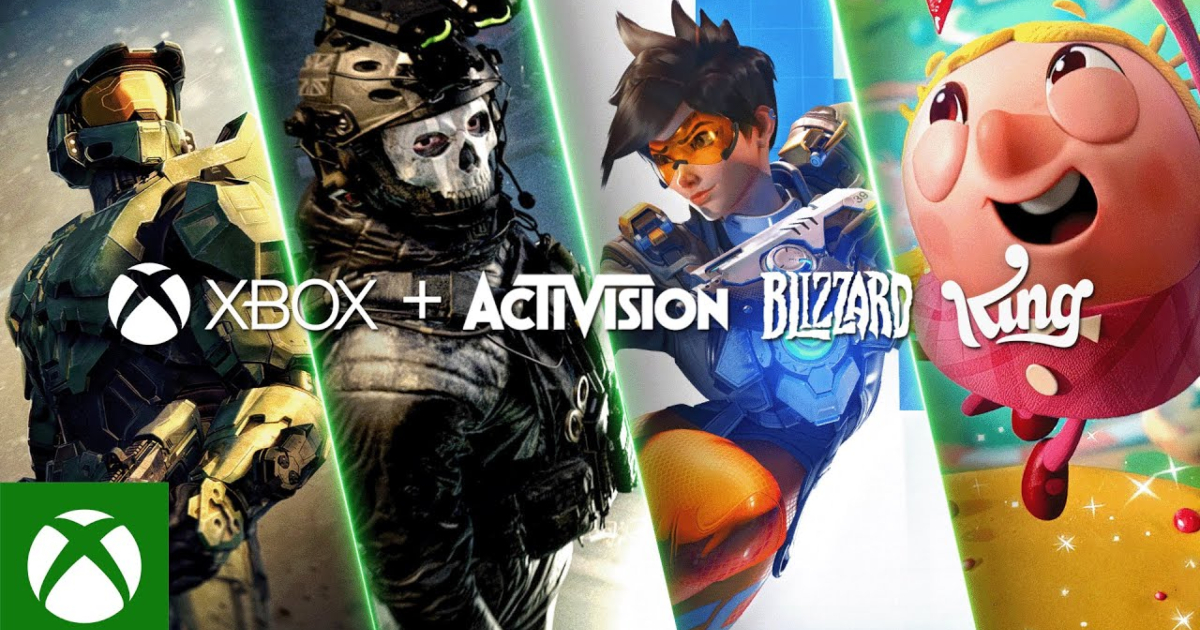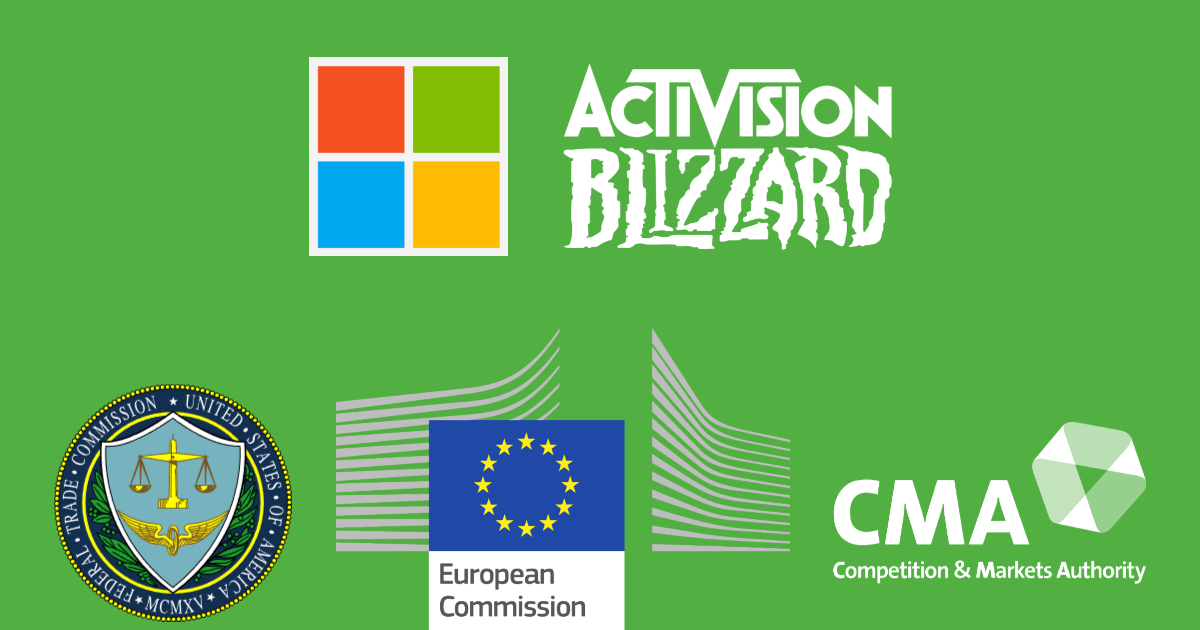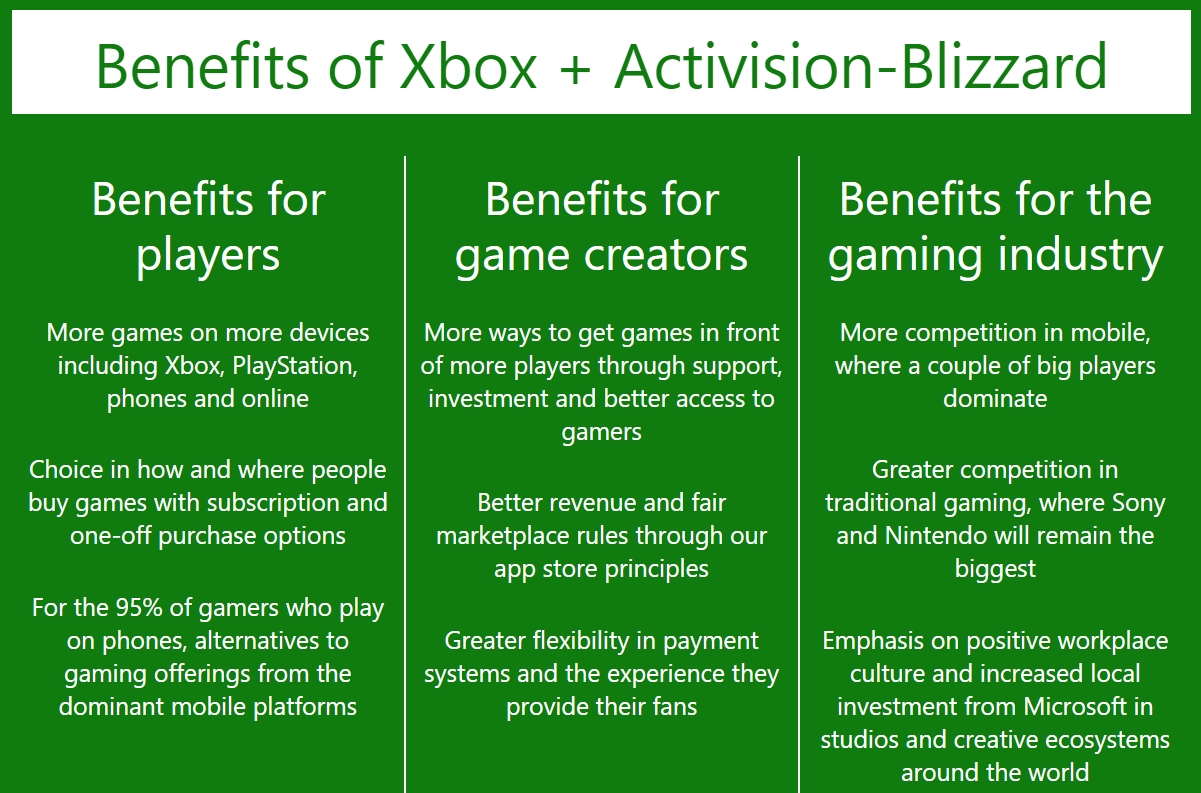It is over, ladies and gentlemen! Microsoft has completed the record-breaking acquisition of Activision Blizzard after a lengthy battle with regulators in the US and Europe.

Shortly after the UK’s Competition and Markets Authority cleared the Activision Blizzard deal, Microsoft officially closed the biggest-ever acquisition in the games industry. It is followed by Take-Two’s $12.7 billion acquisition of Zynga.
“As one team, we’ll learn, innovate, and continue to deliver on our promise to bring the joy and community of gaming to more people,” Microsoft Gaming CEO Phil Spencer said in a statement. “We’ll do this in a culture that strives to empower everyone to do their best work, where all people are welcome, and is centered on our ongoing commitment of Gaming for Everyone.”
From now own, Microsoft will be a wholly owner of companies and studios like:
- Activision Publishing;
- Blizzard Entertainment (World of Warcraft, Diablo, Overwatch, StarCraft);
- King (Candy Crush Saga);
- Treyarch + Infinity Ward + High Moon Studios (Call of Duty);
- Toys for Bob (Crash Bandicoot and Spyro remasters, Call of Duty).
“Today, we can now begin the work of bringing Activision Blizzard King’s iconic and groundbreaking games to Xbox Game Pass,” Microsoft noted.
Following the completion of the deal, Bobby Kotick will remain the CEO of Activision Blizzard until the end of the year. “Phil [Spencer] has asked me to stay on as CEO of ABK, reporting to him, and we have agreed that I will do that through the end of 2023,” he said in an email to employees. “We both look forward to working together on a smooth integration for our teams and players.”
Brief timeline of Microsoft’s acquisition of Activision Blizzard
- Microsoft announced its plans to acquire Activision Blizzard on January 18, 2022. The deal was valued at $68.7 billion, which was almost $20 billion higher than Activision’s market cap at the time.
- Shortly after, Microsoft announced that Game Pass had surpassed 25 million subscribers (and it was the last time the company disclosed any stats about the platform). It also stated that with Activision Blizzard’s nearly 400 million MAU, Game Pass could become “one of the most compelling and diverse lineups of gaming content in the industry.”
- The news caused debate among players, game developers, and business analysts, eventually becoming one of the most discussed topics in the industry. Amid the initial uncertainty, some indie devs expressed their concerns, with Kiftox Games co-founder Tanya Short saying, “This Activision acquisition strikes fear in us because it makes it so much more obvious — maybe [AAA releases] could dominate the rest of the year and then what do we do?”
- The deal was expected to become a subject to regulatory pressure, with Microsoft taking on a long journey to receive approval from regulators across the globe. The three main agencies that could affect the company’s plans were The US Federal Trade Commission (FTC), the UK’s Competition and Markets Authority (CMA), and the European Commission.

- In March 2022, 15 advocacy groups called on FTC chair Lina Khan to closely scrutinize the Activision Blizzard, saying that it “may lead to an undue concentration of market power when viewed as a vertical or horizontal merger, threaten data privacy and security, undermine consumer protection online, impinge on the consumer right to repair and exacerbate worker disempowerment and wage suppression.”
- In May 2022, Microsoft president Brad Smith claimed that the acquisition was entering its middle phase: “It’s a long process and we’re still at the stage where we’re answering questions. For us, of course, the sooner it is done the better, but we will respect the process.”
- That summer, Sony first expressed its concerns about the merger, saying that no other company but Activision is able to create a franchise similar to Call of Duty in terms of impact on the market. PlayStation also noted that if CoD became exclusive to the Xbox platform, this could influence players’ choice of console.
- Sony, led by SIE boss Jim Ryan, then went on a crusade against the Activision Blizzard deal, meeting with regulators and trying to convince them to block the merger as anticompetitive.
- In September 2022, the CMA completed the first phase of its investigation into the deal, eventually deciding to extend the probe. The regulator saw the merger as a realistic threat to competition in the cloud gaming field and in case Microsoft decides to make Activision titles exclusive to its ecosystem.
- The FTC expressed significant concerns about the deal, launching an in-depth investigation. The European Commission also started an extensive probe into the merger.
- Rising tensions with regulators didn’t stop Xbox head Phil Spencer from saying that Microsoft won’t press pause on acquisitions as it plans to stay “at the forefront of innovation and competition.” The company also noted that the Activision Blizzard deal will provide developers with “better revenue and fair marketplace rules through our app store principles” and ” flexibility in payment systems.”

Benefits of the Activision Blizzard deal, according to Microsoft (as of October 2022)
- As a response to regulatory concerns, Microsoft continued to insist that the Call of Duty franchise wouldn’t be removed from PlayStation. “Our intent is that we’ll continue to ship Call of Duty on PlayStation similar to what we’ve done with Minecraft since we’ve owned that,” Spencer said.
- Later that year, Microsoft even pledged to bring the series to Nintendo as a sign of confirmation of its intentions to expand its audience of Activision Blizzard games.
- Eventually, the Activision Blizzard deal was cleared in most countries, including Japan, China, South Korea, Brazil, Saudi Arabia, New Zealand, Chile, Ukraine, and Turkey. The Europen Commission approved the merger in May 2023, ruling that it won’t signficantlya affect competiton in the console market.
- However, the US and UK regulators had no plans to give up on their fight. In December 2022, the FTC filed an antitrust lawsuit to block the Activision Blizzard deal, saying that Microsoft “would have the means and motive” to manipulate pricing, degrade game quality and player experience on rival consoles, or withhold content from competitors entirely.”
- This led to a public court battle, with testimonies from Kotick, Ryan, and Spencer, as well as tons of documents containing never-before-seen information about the gaming businesses of Microsoft and Sony.
- Microsft eventually won the case, as the judge ruled that the company “has committed in writing, in public, and in court to keep Call of Duty on PlayStation for 10 years on parity with Xbox.”
- The CMA, meanwhile, continued to push against the merger, offering to acquire Activision Blizzard without the Call of Duty IP as one of the possible remedies. It blocked the $68.7 billion deal in April 2023, citing cloud gaming concerns as one of the main reasons.
- In July, Sony and Microsoft signed a 10-year agreement to keep Call of Duty on PlayStation, while the Xbox maker also made licensing agreements with cloud gaming providers like Nvidia and Boosteroid.
- The fight with the UK regulator made Microsoft and Activision push back their deal deadline to October 18, as it initially was expected to close by July 2023. And after the company announced its plans to transfer Activision Blizzard cloud gaming rights to Ubisoft, the CMA agreed to approve the $68.7 billion acquisition.
